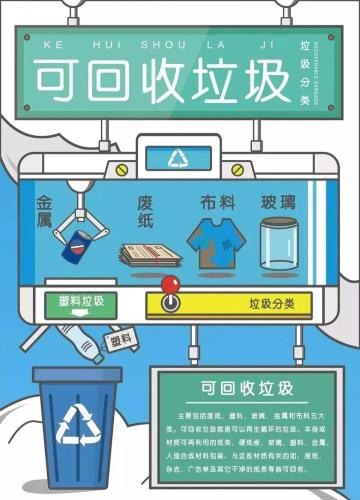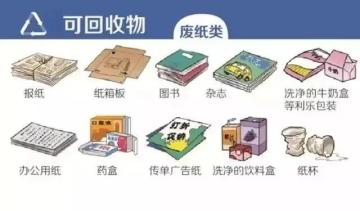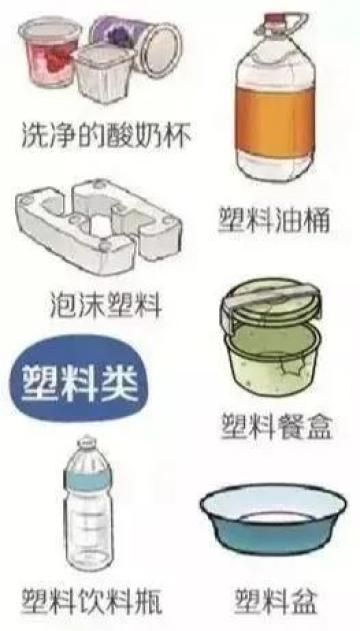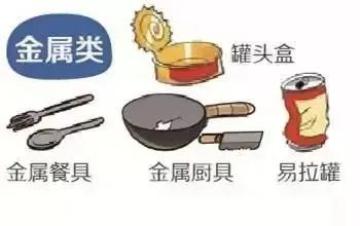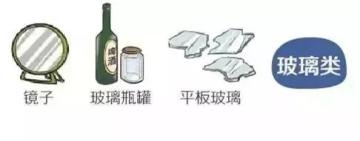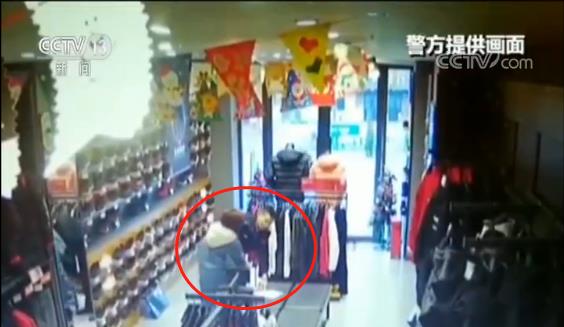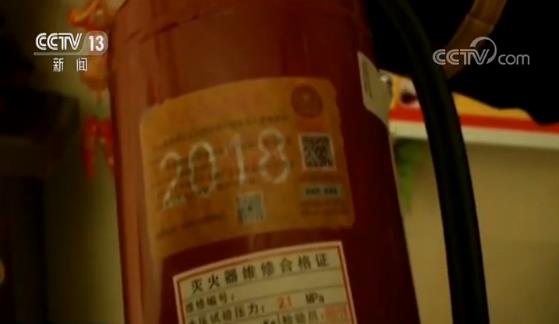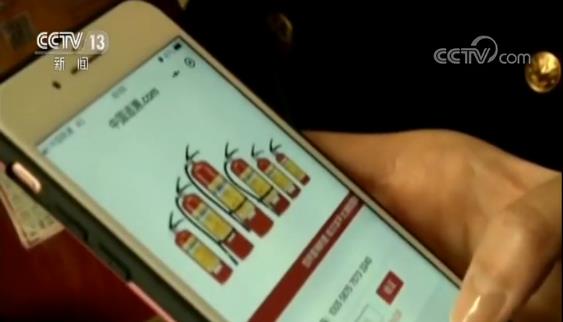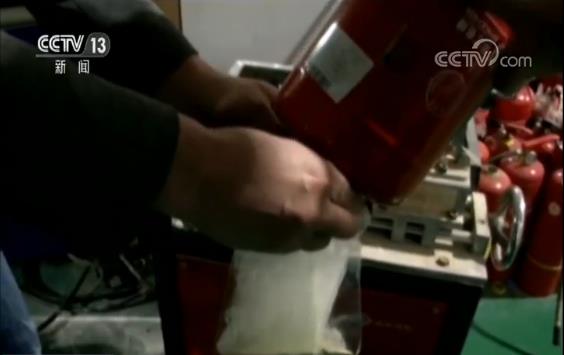Although the upheaval in the Middle East continues, the "Arab Spring", which was full of passion and optimism, has been gradually replaced by pessimism, suspicion and anger, and even has the saying of "Arab Autumn" or "Arab Winter". It starts with a bang and ends with a scribble, which is a true portrayal of the chaos in the Middle East in the past year.
On December 17th, 2010, the self-immolation of a hawker in Tunisia triggered a "butterfly effect", which not only caused Ben Ali, who had been in power for 23 years, to step down, but also triggered an unprecedented political turmoil throughout West Asia and North Africa. Almost all Arab countries were involved in it, and several strongmen’s regimes that had been in power for decades were overthrown, and the turmoil has not been completely settled. So far, this vigorous political upheaval has been going on for a whole year, and people are still full of doubts about the related issues related to the upheaval in the Middle East, so it is necessary to make a comprehensive inventory.
The political ecology in the Middle East is beyond recognition, and different types of countries face different situations.
After experiencing the "Arab turmoil" like big waves, the political ecology in the Middle East has changed beyond recognition: Tunisia, Egypt, Yemen, Libya and other countries have changed their dynasties, the Syrian Bashar regime is facing an unprecedented severe test, and the Gulf monarchy represented by Saudi Arabia is temporarily safe and sound. In countries where political upheaval has taken place, the intensity and intensity of the turmoil are also different: there has been no major bloodshed in the alternation of political power in Egypt, Tunisia and other countries; The regime change in Libya, Syria, Yemen and other countries has evolved into a full-scale armed conflict with heavy weapons, highlighting the true nature of jungle politics.
This raises a question, which type of country is most prone to turmoil, and what causes such a huge difference in the way of regime change? According to people’s general understanding, the more advanced the regime, the more stable the political situation should be. The Republic is obviously more advanced than the monarchy, so according to this logic, the former should be more stable than the latter. However, the reality of the turmoil in the Middle East is just the opposite. Up to now, the regime in the Middle East has basically collapsed or suffered a serious crisis, while Jordan and the Gulf monarchies, which implemented the traditional monarchy and were the least optimistic in advance, have survived safely to this day. Some people think that this is related to the wealth of the country, but this cannot explain why Libya, which is also a rich country, has political turmoil and even regime change, while the Gulf countries can survive; The same poor countries, why Egypt and Yemen are in serious turmoil, while Jordan is safe and sound. Therefore, it is obviously not enough to simply explain the turmoil in the Middle East from the perspective of people’s livelihood.
Which countries in the Middle East are more prone to turmoil is directly related to their internal social and political structures. On the surface, the regimes in the Middle East countries are divided into two categories: republic and monarchy, but there is not much difference between the two regimes in terms of actual governance. If we can see the essence through the phenomenon, we can find that there are actually three types of political ruling structures in Middle East countries, and the degree of turmoil in Middle East countries is directly related to this.
The first type is the isomorphic elite rule mode in which a few elites rule the majority of the people, such as Egypt and Tunisia.
Tribes/sects in such countries are not strong in color, and there is no difference between those in power and their powerful state departments and the people on the issue of identity and ownership. Therefore, the contradiction between those in power and the people in such countries is mainly class contradiction, and the nature of regime change in such countries is relatively simple. Although the confrontation is fierce, it is not a "zero-sum game" to the death. For example, after Egypt’s Mubarak mobilized troops to enter Cairo’s Tahrir Square, the protesters welcomed the troops, and the troops refused to shoot at the people. Mubarak felt that the general situation was over and took the initiative to resign, so that the regime change in the country was completed in a bloodless way. At the same time, the Republican system of government in these countries determines that the highest power of the country belongs to the state apparatus, and both those in power and the people recognize the fact that "family inheritance" is illegal from the bottom of their hearts, so such attempts by those in power can only be half-covered and half-covered, and they are often pushed down.
The second type is the alien elite rule mode in which minority tribes and sects are in power, such as Libya, Syria, Yemen and Iraq before.
The consciousness of tribes or sects in these countries is quite distinct, most of the people in power belong to a certain tribe or sect, and most of the members of their power core circle come from the same tribe or sect, and the policy of governance also gives priority to the interests of their own tribes and sects. For example, there are hundreds of tribes in Libya, and Gaddafi’s elite armed forces and even personal guards all come from their own Kadafa tribe, and the oil interests are mainly tilted towards this tribe. There are about 200 tribes in Yemen, mainly divided into four tribal alliances. Saleh has been able to sit on the presidency for more than 30 years precisely because he comes from the most powerful "Hashed" tribal alliance in Yemen.
This specific social and political structure makes those in power form a "concentric circle" sectarian tradition and the rules of the game. They are endlessly and unconditionally loyal to their own people, but have no sympathy for people and regions outside the tribe. They regard other tribes as their legitimate victims and can plunder or kill them at will. Reflected in real politics, it is that those in power tend to take high-handed measures against the opposition, rather than sit down and negotiate on an equal footing. In their minds, if the opposition is not suppressed, people will think that he is weak and will lose respect. This tribal opposition and violent tendency can well explain why seemingly normal political protests in these countries have rapidly evolved into deadly violent confrontation.
The third is the traditional elite rule mode, mainly hereditary monarchy countries, such as Saudi Arabia, Jordan and Morocco.
In terms of political structure, the rulers of these countries include all kinds of elites in traditional society. For example, Saudi Arabia is a political marriage between the Saudi royal family and Wahhabi Sect, and its members hold important positions in various government agencies, which makes the government have strong executive power. From the perspective of economic structure, most of these countries are rich oil-producing countries, and the source of their wealth is underground resources instead of taxing the people. On the contrary, the government has to provide various benefits to the people, thus forming a kind of "asylum system" rule. As the saying goes, "no taxes, no representation", the people do not have much confidence to demand more political rights. In addition, the founding of such countries is originally a "family rule" and hereditary rule. Therefore, if people want to rise up against such regimes, they often face the double obstacles of legalism and orthodoxy. In addition, these countries "turned over a new leaf" after this round of Middle East wave, vigorously promoted reforms, and even eased the antagonism of the domestic people.
To some extent, it is precisely because of the differences in social and political structure that different types of countries in the Middle East show different viability in the "Arab turmoil".
From "Arab Spring" to "Arab Autumn": Impact Assessment of Current Middle East Turbulence
Turbulence is widespread in the Middle East countries, which is largely due to the accumulation of internal disadvantages, and has reached the point where it is necessary to change. Therefore, the "Arab turmoil tide" is not only a strong resistance to the status quo, but also an element of exploring new ways for national prosperity. In this sense, this "Arab turmoil" can indeed be called the "Arab Spring".
However, over the past year or so of turmoil in the Middle East, the effect of this kind of political exploration is obviously not satisfactory. From an economic point of view, the turmoil in the Middle East has aggravated the economic recession of these countries and may lead them into a vicious circle. According to the report released by the International Monetary Fund in October, the drastic changes in the Middle East have caused at least $55 billion in economic losses to the affected countries. Among them, Libya and Syria were the hardest hit, followed by Egypt, Tunisia, Bahrain and Yemen. The GDP of these countries has decreased by at least $20.6 billion, and the fiscal balance has deteriorated. Libya suffered the most, and the country’s economic activities basically stopped, with a GDP loss of $7.7 billion and a national financial loss of $6.5 billion. In Egypt, public expenditure increased to $5.5 billion in the first nine months of 2011, while fiscal revenue decreased by $75 million. In Yemen, riots caused losses of $858 million to government finances. In Tunisia, 80% of enterprises in the country were hit by the turmoil, which led to a sharp rise in the number of unemployed people, and now it has exceeded 700,000. At the same time, prices in the country have soared and some necessities are in short supply. The economies of Tunisia, Egypt and other countries are very dependent on tourism, and the domestic political turmoil has made many tourist attractions inaccessible, which has made the economic situation worse.
In the political field, although many countries have completed regime change, the political situation is still a mess. In Tunisia, statistics show that since March this year, there have been an average of 110 to 150 demonstrations or sit-ins and 150 to 180 traffic blocking incidents nationwide. After the completion of the parliamentary election in October 2011, the power struggle among political parties became increasingly fierce, which forced the parliament, which was sworn in shortly, to adjourn. In Libya, armed forces of different factions stationed in the capital Tripoli have clashed from time to time. In Womis, southwest of Tripoli, since December 10th, the local armed forces of Zintan and the local Mashashiya tribe have exchanged fire for three consecutive days. On December 10, the convoy of the chief of staff of the Transitional Government Army was attacked in Tripoli, and some officials accused Zintan militants of trying to "assassinate". On December 12th, the largest demonstration broke out in Benghazi after Gaddafi’s downfall. Tens of thousands of people took to the streets and shouted slogans such as "The revolution started in Benghazi and resolutely defended the fruits of the revolution" to express their strong dissatisfaction, indignation and disappointment with the "Transitional Committee". In Egypt, since the military took over the state power, domestic demonstrations still broke out frequently, resulting in casualties. Protesters, represented by youth organizations, demanded that the military hand over power as soon as possible, and held demonstrations several times to brew a "second revolution."
Middle East countries are in a "painful period" of breaking the old and establishing the new.
Middle East countries are still in chaos, partly because these countries are in a "painful period" of breaking the old and establishing the new, and it takes time and patience to return to normal. But the more important reason is that the medicine is not symptomatic. Arab countries are suffering from a "decline syndrome". Lebanese scholar Antoine Mesala once said, "There is no Arab regime that has a serious minority problem and a serious majority problem". According to the author’s understanding, the so-called minority problem is actually due to the lack of democracy and freedom (specifically, the lack of "freedom" rather than "democracy"), resulting in the neglect of the legitimate rights and interests of the minority; The so-called majority problem is actually that a few powerful people oppress and extract the majority people, which leads to polarization between the rich and the poor, rampant corruption and increasingly prominent class contradictions. At present, the Arab people are protesting, mainly because they have not solved the "majority problem". Therefore, in order to get the country out of the predicament and get on the right track, we should first strengthen the "people’s nature" of the political power. In other words, the key to measure the success of a revolution is not what kind of regime is implemented, but which class will come to power in the future and what kind of ideology will be implemented, that is, "what flag to raise and what road to take."
However, after the current Arab upheaval, for various reasons, the successor obviously did not seriously think about these core issues. Moreover, because the Arab people are tired of the strongman politics that has been maintained for many years, just as the pendulum will inevitably move in the opposite direction after moving in one direction, the political transformation in the Middle East is developing towards decentralization and democratization. Indeed, Tunisia, Egypt, Libya and other countries have made political reconstruction schedules and started the process of "political democratization" after completing the "regime change". But obviously, democratization will not automatically solve the "majority problem" of the country.
In fact, as early as the 1920s, some Arab countries (such as Egypt and Jordan) had established parliamentary democracy to varying degrees (this period was called the "free Arab period"). But it turns out that this system can’t solve all kinds of deep-seated problems facing the country. These democracies, which are talked about by some people, are actually a huge "tofu dregs project". In fact, no country in the third world has achieved national prosperity by first realizing democratization. On the contrary, many countries have lost their effectiveness and have to rely on external powers after implementing democratization. Based on this, it is not difficult to understand why most Arab countries pursued military/strongman politics during the most prestigious period in the world in the 1950s and 1960s. Therefore, hastily starting democratization will only lead this magnificent political movement astray.
From a practical point of view, the final result of this democratization movement of "only asking for votes, not asking for opinions" is to make the political Islamic forces that have been dormant for many years become the biggest beneficiaries. In Tunisia, the Baath Movement Party won 89 of the 217 seats in the Constituent Assembly election on October 23, 2011, becoming the largest party in the Constituent Assembly; In the first stage of Egypt’s elections, Islamic parties, mainly the Freedom and Justice Party of the Muslim Brotherhood and the Bright Party of the Salafist faction, won more than 60% of the votes, while the secular Egyptian League and the veteran Waffle Party only won 20% of the votes; Morocco’s House of Representatives held an early general election on November 25th, and the moderate Islamic party Justice and Development Party won 107 of the 395 seats, far ahead of other political parties. When the Libyan transitional government was established on November 24th, its leaders also indicated that Islam would be the legislative basis in the future.
The reason why Islamic forces can gain power is not that they represent some advanced productive forces or advanced culture, but largely because these countries have practiced high-handed rule for many years and there is no political opposition in the modern sense, thus enabling religious forces like the Muslim Brotherhood to accumulate strength and grow stronger. Are these Islamic forces capable of leading the country out of the predicament? From the perspective of class attributes, although the Muslim Brotherhood claims to represent the middle and lower classes, its top level is almost all billionaires, so it is doubtful whether its future policies can truly represent the lower classes. From the ideological point of view, its leading ideology is Islamic doctrine, but it is difficult to provide effective guiding principles for national modernization; From a historical perspective, these political Islamic forces have always played the role of "opponents", and it is doubtful whether they can lead the country out of the predicament and embark on the road of prosperity. Therefore, although the democratization of these countries is in full swing, people in Egypt and other countries continue to protest and try to carry out the "second revolution". Obviously, they are dissatisfied with this solution and try to find a new way to break through.
Western intervention has changed the nature of the "Arab turmoil" and the road to Arab revival has become more difficult.
The turmoil in the Middle East was originally an endogenous turmoil, which was mainly caused by internal factors, and the focus of public protests was mainly aimed at domestic authorities. However, because most of the countries in turmoil are pro-Western countries, the turmoil in the Middle East has greatly impacted the vested interests of the West that have been maintained in the Middle East for many years. After a short period of hesitation and vacillation, western countries began to take the opportunity to reshape the Middle East order, turn unfavorable factors into favorable ones, and safeguard their own interests to the maximum extent. Obviously, the western intervention in the Middle East obviously pursues "multiple standards": trying to protect the current regime in Saudi Arabia and other Gulf countries, encouraging and conniving the government to suppress popular protests; For Egypt, Tunisia, Yemen and other countries that are in serious turmoil and the situation is difficult to clean up, they will make use of the situation and try to bring their future trends into the western track; For Libya, Syria, Iran and other countries that are anti-western or have a bad relationship with the West, it will add fuel to the flames and even directly carry out military strikes. However, the external interference by the west for selfish purposes has made the regional situation more complicated.
In particular, the Libyan war launched by NATO in March 2011 marked the beginning of the political struggle in the Middle East and entered a new stage of western military intervention and forced shaping of the regional pattern. On the surface, the war was authorized by the United Nations. In fact, it not only ignored the spirit of regional organizations in Resolution 1973, but also exceeded the stipulation that Resolution 1973 only authorized the establishment of a "no-fly zone". NATO claimed to "prevent a humanitarian disaster", but before Libya’s war, there were only a few hundred casualties in internal conflicts, and the situation has basically subsided. The indiscriminate bombing and the expansion of the war in the West caused more than 30,000 deaths and more than 50,000 injuries in Libya, and a large number of basic facilities were destroyed. Therefore, it is essentially an unjust war. The internal contradictions in Libya were far from the need to change the dynasty, but the western military intervention forcibly changed the original political process of the country, which plunged Libya from a stable and rich country with the highest living standard in Africa into chaos. The political situation in Libya in the post-Gaddafi era is likely to become a vassal of the West and a bridgehead for advancing into Africa.
What is particularly lamentable is that such an unjust war of the West against Arab countries has actually been actively endorsed by many Arab countries, and even directly participated in the "encirclement" of the Qaddafi regime. We should know that if the Arab world wants to achieve national rejuvenation and get rid of the vicious circle, it is the basic premise to achieve internal Arab unity. The performance of most Arab countries in the Libyan war shows that the Arab world is getting farther and farther away from realizing the dream of national rejuvenation. This seemingly massive upheaval in the Middle East will not make the countries in the region truly embark on the road of revival, but will still be the victims of the politics of western powers. Facts also show that after the successful intervention in Libya, the appetite and confidence of the West to transplant the "Libya model" in the region doubled. Therefore, just after the end of the Libyan war, the West began to step up pressure on Syria and Iran, which made the situation in Syria and Iraq increasingly tense. Syria is located in the heart of the Arab world, and once its situation gets out of control, it is likely to cause unexpected turmoil throughout the Middle East.
Sow the dragon seeds, but reap the fleas. The turbulent upheaval in the Middle East was originally a progressive movement with civil rights, people’s livelihood and nationality as its main demands, but the nature of this "Middle East Wave" has become increasingly stale due to the combined effects of various negative factors inside and outside. Although the upheaval in the Middle East continues, the "Arab Spring", which was full of passion and optimism, has been gradually replaced by pessimism, suspicion and anger, and even has the saying of "Arab Autumn" or "Arab Winter". It starts with a bang and ends with a scribble, which is a true portrayal of the chaos in the Middle East in the past year.
